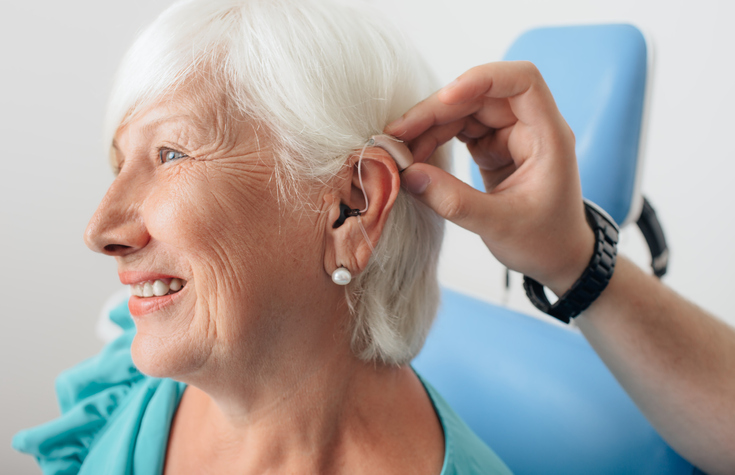
Hearing loss, while normal to some degree as people age, has been shown to put people at a higher risk for dementia.
When checking in on Mom, you find the television is blaring, and she is asking you to repeat what you’ve just said, or even to speak up because she thinks you’re mumbling. Some extent of hearing loss is definitely typical in older loved ones, and is deserving of staying on top of through regular hearing examinations. But there’s another reason to pay attention to any hearing loss in older adults: the connection between hearing deficiencies and dementia.
What’s the Link Between Dementia and Hearing Loss?
Researchers believe there are a few factors that come into play for an older adult with hearing loss and their increased risk for dementia.
- When a loved one has hearing loss later in life, the brain begins to shrink more rapidly
- Hearing loss may cause seniors to restrict their social interactions with other people, triggering a decrease in brain activity and engagement along with intellectual stimulation
- The brain has to work harder to understand audible input, affecting memory and thinking as it strains to fill in the gaps of missed dialogue
Studies have already discovered that older adults dealing with diminished hearing also encounter a reduction in cognitive functioning as much as 30–40% faster than individuals without hearing loss. What’s more, hearing loss results in an elevated risk for depression and falls, as well as other serious health problems.
The next step is further exploring the potential link between hearing loss and dementia and to see whether older adults who get treatment for their hearing loss can avoid developing dementia. With 48 million people in the U.S. alone struggling with some sort of hearing loss, the potential effect of better understanding this connection is important.
What Is the Best Way to Help a Loved One With Hearing Loss?
If hearing aids are recommended by a physician, encourage a loved one to wear them and to follow the doctor’s prescribed regimen of regular checkups and adjustments.
Also, encourage your loved one to stay socially active in spite of hearing loss. Having a companion accompany the person on visits with friends and family or on outings is a fantastic way to help them feel more comfortable and assured. The companion can serve as a liaison when needed to help the person participate in conversations and not feel left out.
At Compassionate Nursing Services, our care providers make excellent companions for people with hearing loss or any other health condition. We can provide accompaniment and transportation to medical appointments as well as fun outings, along with a full selection of customized support services at home or on the go.
We also offer specialized care services for people with dementia. Our fully trained and experienced professionals understand the unique challenges of the disease and offer creative, compassionate solutions.
Give us a call at 314-432-4312 to learn more about how we can help someone you love live their best lives!
